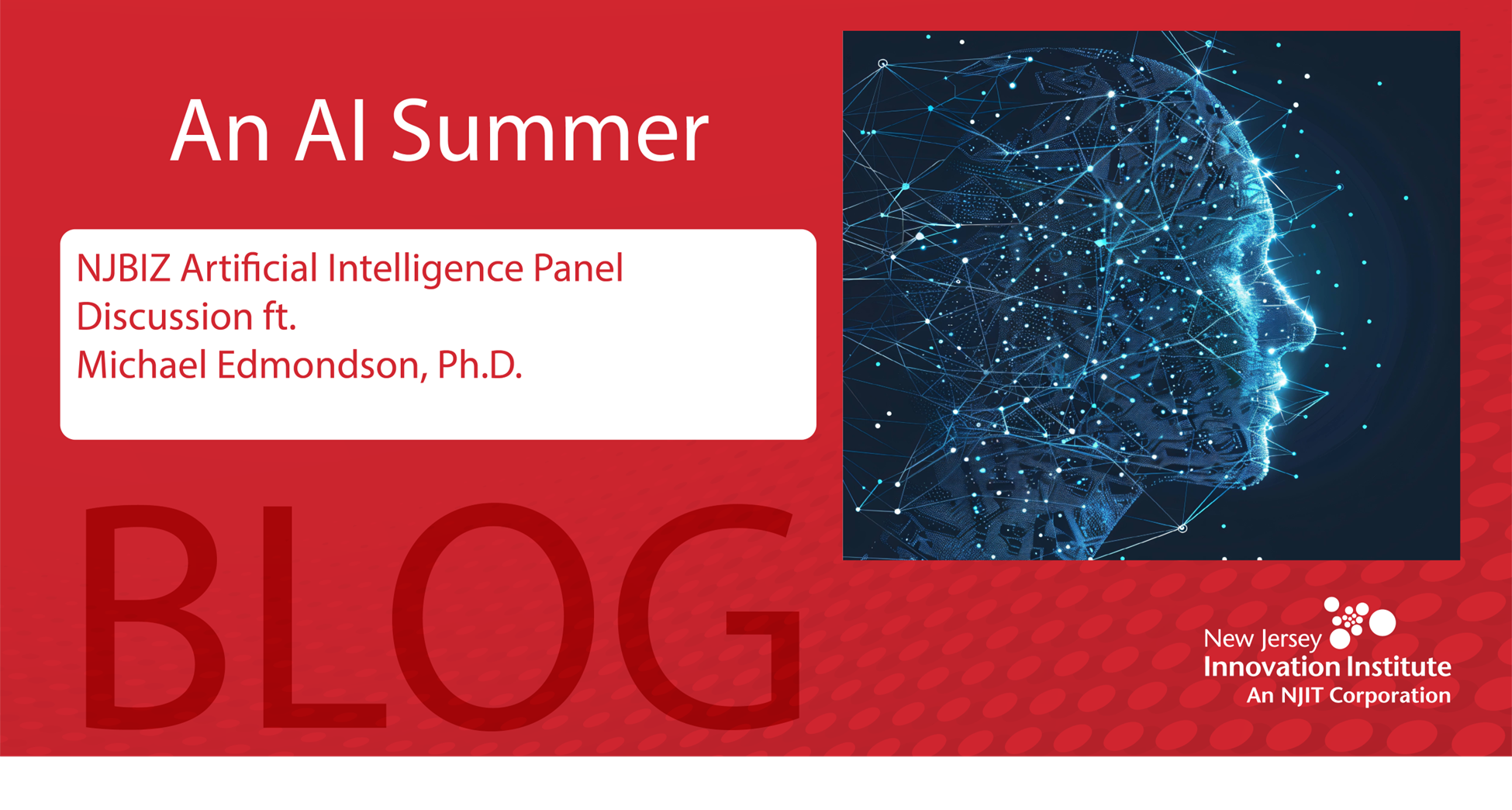Earlier this summer, NJBIZ Magazine hosted a panel discussion covering numerous topics related to AI and the professional world. There were four panelists from a variety of industries throughout New Jersey: Sameer Sethi, Data Analytics Officer at Hackensack Meridian Health, Jason Gulya, Professor of English and Applied Media and Berkley College, Brigette Eagan, Partner and Attorney at Genova Burns, and Michael Edmondson, Ph.D., VP of the Learning and Development Initiative at New Jersey Innovation Institute (NJII). The Panel was hosted by Jeffrey Kanige of NJBIZ.
While conversation topics ranged from AI ethics and best practices to protecting against data breaches and securing sensitive information, the overall theme was about how these professionals are currently using AI in their respective industries, and what it means for the future. When discussing fears around AI replacing jobs, Sameer Sethi suggested that while those fears are warranted, only those who refuse to use AI tools are at risk of being replaced. Jason Gulya represented his perspective as a professor through his students: “having AI literacy is going to be such a fundamental skill as they have jobs, have careers, or have their own businesses. So that’s what I try to cultivate. So, when I go into a room, I will always ask my students who’s using this technology.”
From a legal standpoint, Brigette Eagan highlighted the limitations of AI, specifically in industries where confidentiality is important. She stated, “You cannot disclose confidential client information. You cannot waive our attorney-client privilege, so you are not allowed to put any client information into AI.” This statement outlines the ongoing challenges AI faces in sectors like law and healthcare, where sensitive data cannot be freely inputted into AI systems.
Finally, NJII’s Michael Edmondson had quite a bit to add, including a reference to NJII’s newly formed AI division. He spoke about the unpredictable nature of the job market, specifically shaped by AI and emerging technologies. “Today’s students are going to have jobs that don’t yet exist using technologies that haven’t been invented to solve problems we can’t even foresee,” said Dr. Edmondson.
As AI continues to integrate into the professional world, it brings both opportunities and challenges. By listening to experts like those on this panel, we can begin to address these questions and develop practical solutions for the future. Don’t miss out on the full discussion—listen to the panel here.
